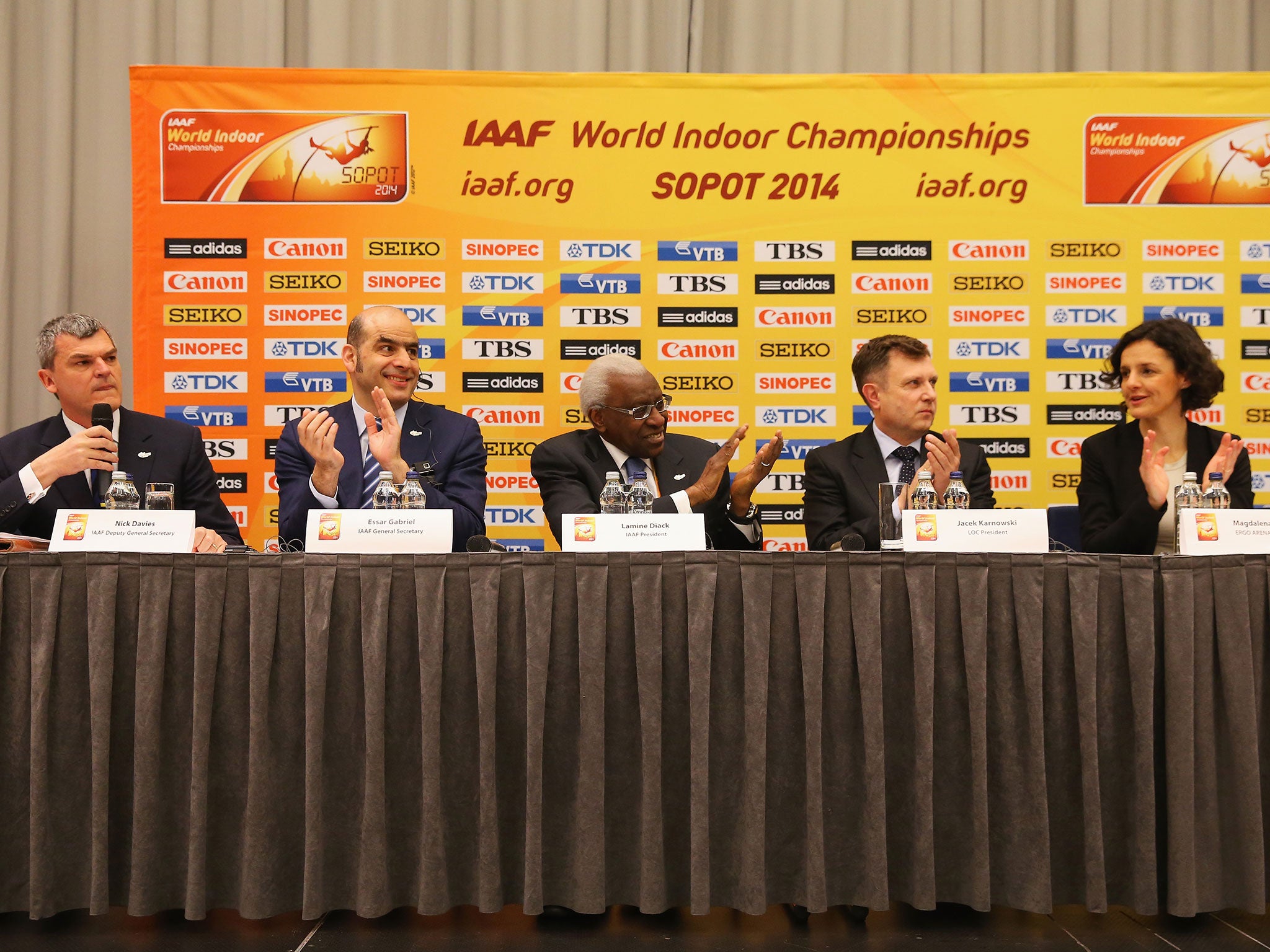IAAF tried to delay naming Russian doping cheats before 2013 Moscow World Championships
The IAAF is again under fire after a leaked email from IAAF deputy general secretary Nick Davies to Papa Massata Diack, the son of former president Lamine Diack, revealed an attempt to cover up the widespread doping

The International Association of Athletics Federations (IAAF) was again forced to defend its actions over Russian doping on Monday after a leaked email showed how officials planned a damage-limitation strategy before the 2013 Moscow world championships.
The email suggesting a "special dossier" on Russian drugs cheats was from IAAF deputy general secretary Nick Davies to Papa Massata Diack, the son of former president Lamine Diack, who then worked for the sport's governing body as a marketing consultant.
Both Diacks are under investigation over corruption offences, while Russian athletes are currently banned from the sport following revelations of widespread, state-sponsored doping.
The report also criticised the governing body for its "laissez-faire" attitude to the problem. Though the extent of Russian doping is now out in the open, the IAAF were seemingly fighting to keep a lid on it two years ago.
Extracts from the "very secret" email published by French newspaper Le Monde, but not verified by Reuters, said: "I need to be able to sit down with the anti-doping department and understand exactly what Russian 'skeletons' we have still in the cupboard regarding doping.
"I think that the time to have unveiled the various athletes was a long time ago and that now we need to be smart.
"We can prepare a special dossier on IAAF testing which will show that one of the reasons why these Russian athletes come up positive is that they get tested a lot."
The email, which was sent in July 2013, a month before the Moscow world championships, also suggested that CSM, the sports marketing firm chaired by IAAF president Sebastian Coe (then a vice-president) could be used as part of an "unofficial PR campaign" to fend off negative stories in the British media.
It also said the IAAF could benefit from Coe's political influence in Britain to minimise the damage any revelations might cause.
Davies, who now works as Coe's chief of staff, issued a statement on Monday denying any wrong-doing.
"As Director of IAAF Communications it was one of my responsibilities to manage and promote the reputation of the IAAF," he said.
"My email to Papa Massata Diack was brain storming around media handling strategies to deal with the serious challenges we were facing around the image of the event.
"No plan was implemented following that email and there is no possibility any media strategy could ever interfere with the conduct of the anti-doping process.
"I did not discuss these ideas with CSM and there has never been any agreement between the IAAF and CSM for any PR campaigns. CSM has never worked for the IAAF in any capacity since Sebastian Coe joined the company," Davies said.
Last week Le Monde published allegations that Lamine Diack had sought money from Russia to be used to fund a political campaign in his native Senegal. Davies denied any knowledge of such dealings, which Diack has also denied, or any other criminal wrongdoing within the organization.
Diack is being investigated on charges that he asked for payment from Russian athletes to cover up positive dope tests.
"I had no knowledge in 2013 that IAAF officials might be involved in alleged criminal conduct in relation to doping cases, nor am I aware of any doping case that was not brought that should have been brought, or of any doping ban that was not published when it should have been published under the IAAF rules," Davies said.
"When information concerning alleged corruption was brought to my attention in early 2014, I was one of a number of IAAF staff members who referred the matter to the IAAF Ethics Commission and who have assisted in the resulting investigation by the Commission.
"I was also one of those staff members who voluntarily offered full assistance to investigators of the WADA Independent Commission as well as to the French and Monegasque Police Authorities and will continue to do so."
Reuters
Join our commenting forum
Join thought-provoking conversations, follow other Independent readers and see their replies
Comments
Bookmark popover
Removed from bookmarks